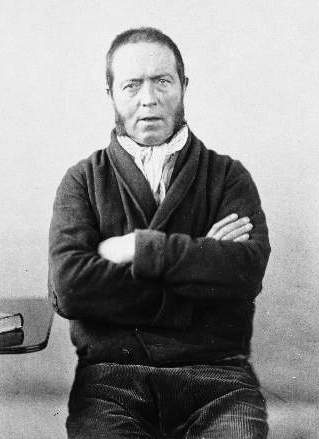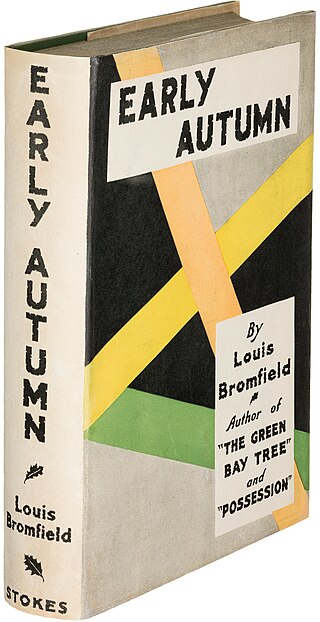Related Research Articles
The insanity defense, also known as the mental disorder defense, is an affirmative defense by excuse in a criminal case, arguing that the defendant is not responsible for their actions due to a psychiatric disease at the time of the criminal act. This is contrasted with an excuse of provocation, in which the defendant is responsible, but the responsibility is lessened due to a temporary mental state. It is also contrasted with the justification of self defense or with the mitigation of imperfect self-defense. The insanity defense is also contrasted with a finding that a defendant cannot stand trial in a criminal case because a mental disease prevents them from effectively assisting counsel, from a civil finding in trusts and estates where a will is nullified because it was made when a mental disorder prevented a testator from recognizing the natural objects of their bounty, and from involuntary civil commitment to a mental institution, when anyone is found to be gravely disabled or to be a danger to themself or to others.

The M'Naghten rule(s) (pronounced, and sometimes spelled, McNaughton) is a legal test defining the defence of insanity that was formulated by the House of Lords in 1843. It is the established standard in UK criminal law. Versions have been adopted in some US states, currently or formerly, and other jurisdictions, either as case law or by statute. Its original wording is a proposed jury instruction:
that every man is to be presumed to be sane, and ... that to establish a defence on the ground of insanity, it must be clearly proved that, at the time of the committing of the act, the party accused was labouring under such a defect of reason, from disease of the mind, as not to know the nature and quality of the act he was doing; or if he did know it, that he did not know he was doing what was wrong.
Durham most commonly refers to:

Talmage is a census-designated place (CDP) in Mendocino County, California, United States. Talmage is located 2.5 miles (4 km) east-southeast of Ukiah, at an elevation of 627 feet (191 m). The population was 986 at the 2020 census, down from 1,130 in 2010. It lies in the southeastern part of the Ukiah Valley and is home to the City of Ten Thousand Buddhas, one of the largest Chan Buddhist temples in the United States. The town's name honors early settler Junius Talmage.

Insanity, madness, lunacy, and craziness are behaviors caused by certain abnormal mental or behavioral patterns. Insanity can manifest as violations of societal norms, including a person or persons becoming a danger to themselves or to other people. Conceptually, mental insanity also is associated with the biological phenomenon of contagion as in the case of copycat suicides. In contemporary usage, the term insanity is an informal, un-scientific term denoting "mental instability"; thus, the term insanity defense is the legal definition of mental instability. In medicine, the general term psychosis is used to include the presence of delusions and/or hallucinations in a patient; and psychiatric illness is "psychopathology", not mental insanity.
In criminal law, diminished responsibility is a potential defense by excuse by which defendants argue that although they broke the law, they should not be held fully criminally liable for doing so, as their mental functions were "diminished" or impaired.

John Warnock Hinckley Jr. is an American musician who attempted to assassinate U.S. president Ronald Reagan as he left the Hilton Hotel in Washington, D.C., on March 30, 1981, two months after Reagan's first inauguration. Using a revolver, Hinckley wounded Reagan, police officer Thomas Delahanty, Secret Service agent Tim McCarthy and White House Press Secretary James Brady. Brady was left disabled and died 33 years later from his injuries.

Forensic psychiatry is a subspeciality of psychiatry and is related to criminology. It encompasses the interface between law and psychiatry. According to the American Academy of Psychiatry and the Law, it is defined as "a subspecialty of psychiatry in which scientific and clinical expertise is applied in legal contexts involving civil, criminal, correctional, regulatory, or legislative matters, and in specialized clinical consultations in areas such as risk assessment or employment." A forensic psychiatrist provides services – such as determination of competency to stand trial – to a court of law to facilitate the adjudicative process and provide treatment, such as medications and psychotherapy, to criminals.
Articles related to criminology and law enforcement.
A Durham rule, product test, or product defect rule is a rule in a criminal case by which a jury may determine a defendant is not guilty by reason of insanity because a criminal act was the product of a mental disease. Examples in which such rules were articulated in common law include State v. Pike (1870) and Durham v. United States (1954). In Pike, the Superior Court of Judicature of New Hampshire wrote, "An accused is not criminally responsible if his unlawful act was the product of mental disease or mental defect."

David Lionel Bazelon was a United States circuit judge of the United States Court of Appeals for the District of Columbia Circuit.

"Virtual Insanity" is a song by British funk and acid jazz band Jamiroquai, released on 19 August 1996 by Sony Soho Square as the second single from their third studio album, Travelling Without Moving (1996). The song was written by Jay Kay and Toby Smith, and produced by Al Stone. Its music video, directed by Jonathan Glazer, was released in September 1996, garnering ten nominations and winning four, including for Video of the Year, at the 1997 MTV Video Music Awards. The music video has since become an Internet meme.

Early Autumn is a 1926 novel by Louis Bromfield. It won the Pulitzer Prize for the Novel in 1927. In 1956, producer Benedict Bogeaus announced that he was adapting the book into a film to be titled "Conquest," but the film was never made.

Jang In-hwan was a Korean independence activist. He is best known along with Jeon Myeong-un for his role in the 1908 assassination of Durham Stevens, a former American diplomat, employee of the Japanese colonial office in Korea, and pro-Japan lobbyist.
Louis A. Sass is a professor of Clinical Psychology at the Graduate School of Applied and Professional Psychology at Rutgers University who specializes in severe psychopathology, philosophy and psychology, and psychology and the arts. Sass has served on the faculty of Rutgers University since 1983 and has been a visiting professor at a wide range of institutions both in the United States and abroad. He has been published widely, and his book Madness and Modernism: Insanity in the Light of Modern Art, Literature, and Thought has been called "a new landmark in the study of the modern era.". The revised edition of Madness and Modernism won the BMA: British Medical Association's 2018 award for Best Book in Psychiatry.
The General Hospital of Paris was an Ancien Régime institution intended as a place of confinement of the poor. Formed by a royal edict during the reign of Louis XIV, it aimed to address the recurring problem of begging and the Cour des miracles, as well as to house invalids. The General Hospital's authority stretched beyond its premises to include all the poor in Paris.

United States v. Brawner, 471 F.2d 969, is decision by the United States Court of Appeals for the District of Columbia Circuit in which the Court held that a person is not responsible for criminal conduct if at the time of such conduct as a result of mental disease or defect, he lacked substantial capacity either to appreciate the criminality of his conduct or conform his conduct to the requirements of the law.
Durham v. United States, 214 F.2d 862, is a criminal case articulating what became known as the Durham rule for juries to find a defendant is not guilty by reason of insanity: "an accused is not criminally responsible if his unlawful act was the product of mental disease or mental defect."

An Essay on Abstinence from Animal Food, as a Moral Duty is a book on ethical vegetarianism and animal rights written by Joseph Ritson, first published in 1802.
Kahler v. Kansas, 589 U.S. ___ (2020), is a case of the United States Supreme Court in which the justices ruled that the Eighth and Fourteenth Amendments of the United States Constitution do not require that states adopt the insanity defense in criminal cases that are based on the defendant's ability to recognize right from wrong. It was argued on October 7, 2019 and decided on March 23, 2020.